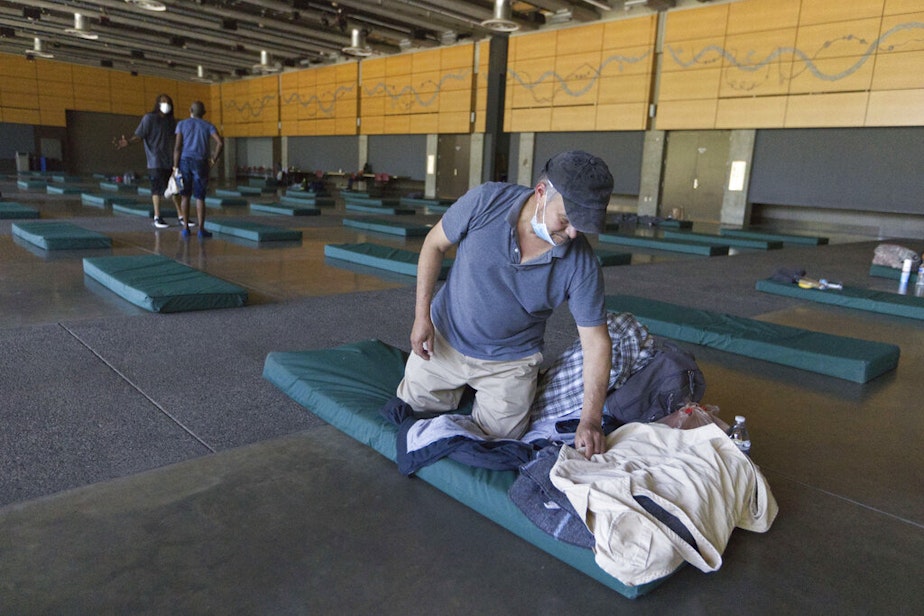Another heat wave is on the way, what’s your action plan?

An excessive heat watch goes into effect Wednesday afternoon for most of western Washington. With extreme temperatures comes the increased potential for heat related illness, especially for people working outside. It's a double whammy of sorts for the Northwest, after the record-breaking heat wave in late June. That ended up being the deadliest weather-related disaster in Washington state history.
University of Washington Professor Kristie Ebi teaches at the Center for Health and the Global Environment. She spoke to KUOW’s Paige Browning about measures that can prevent death and illness.
This interview has been edited for clarity.
Paige Browning: You’ve said before that extreme heat events require an action plan. What does that entail?
Kristie Ebi: The heat action plan includes not just the warnings that we're getting from the meteorologists, but also the actions that each of us can take individually and collectively to make sure we protect ourselves, our friends, and our family during the heat. Heat action plans will include a variety of communication around what we can do individually. We can make sure we stay hydrated, wear light clothing; make sure we know of a place we can go to cool down if we get particularly hot.
From the level of the city and the county, it will include not just that kind of information but organization around, for example, opening cooling centers, which may be particularly important during this heat event, because of the possibility of higher levels of poor air quality from wildfire smoke.
What sort of heat related illness is a concern during this time?
Sponsored
If we're not able individually to keep our core body temperature down, then the increased strain on our cells and our organs means we put our heart under additional stress, our kidneys, our respiratory system. If people have underlying chronic medical conditions, they will be at increased risk. Typically after a heat event, when you look at the number of excess deaths, about 50% are due to heart disease.
If someone cannot get to a cooling center, or can't get to an air conditioned home, what other steps can we take to stay cool, to keep our bodies healthy during this?
If you've got access to a basement, someplace that can be cooler. If not, if you've got an electric fan, sitting in front of the electric fan; putting some water on your skin so the fan evaporates it will really help reduce your body temperature so that you can stay healthy during these hot periods.
It does seem that these extreme heat events require people to help each other. What things help best in this scenario? How do we look out for each other?
We're a community where people do look out after each other. This is reaching out to people who are more vulnerable, making sure that they are taking care of themselves, staying hydrated, wearing lighter clothing, finding cooler places. It's reaching out within your communities.
Sponsored
We're all part of multiple communities here in King County. Ensuring that we do reach out through faith-based organizations and through other organizations that reach out, for example, to people who live in historically redlined districts because they're hotter.
There are lots of ways that we can reach out and just make sure that everybody is protected during this period of hot weather. You mentioned outdoor workers. Another group are babies and young children, who physiologically are unable to handle very rapid increases in temperature. We do need to pay attention, to make sure that we protect them as well.
Listen to the interview by clicking the play button above.





